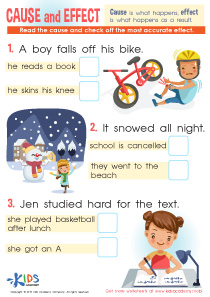Critical Thinking Normal Reading Non-Fiction Worksheets for Ages 6-7
5 filtered results
-
From - To
Enhance your child's reading and analytical abilities with our engaging Critical Thinking Normal Reading Non-Fiction Worksheets, tailor-made for ages 6-7. These carefully designed worksheets from Kids Academy focus on stimulating young minds through intriguing non-fiction content. By tackling real-world topics, children practice and build their critical thinking skills, comprehension, and ability to draw connections. Each worksheet encourages kids to ask questions, analyze information, and articulate their thoughts clearly. Ideal for educators and parents, our resources provide an enjoyable way for kids to learn and develop essential reading and thinking skills, setting a solid foundation for future academic success.
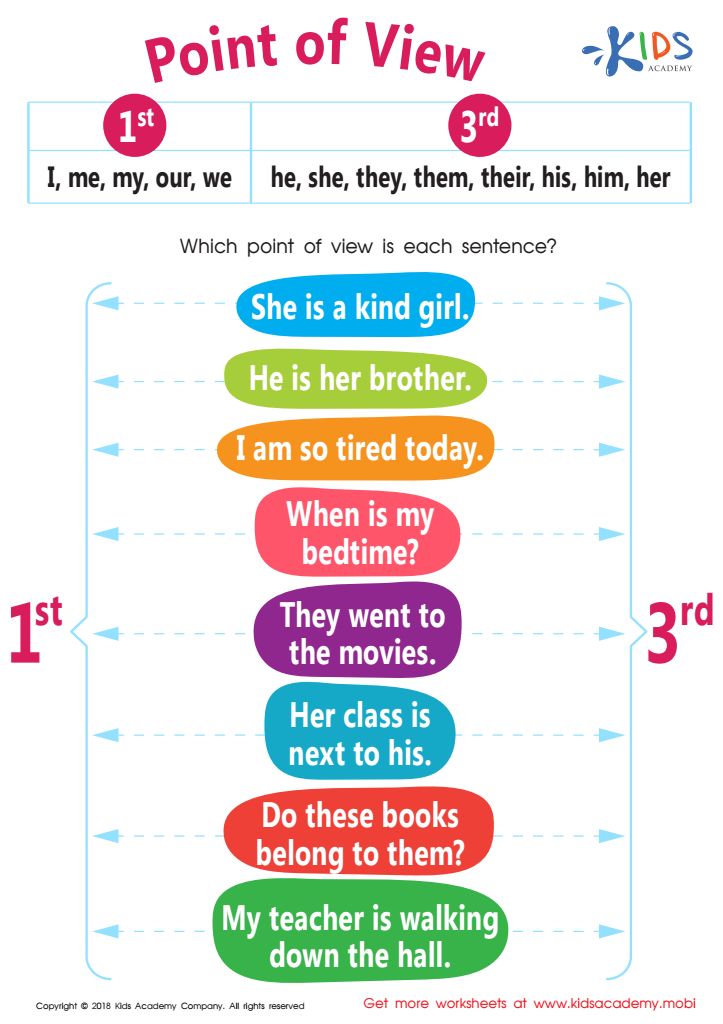

Point of View Worksheet
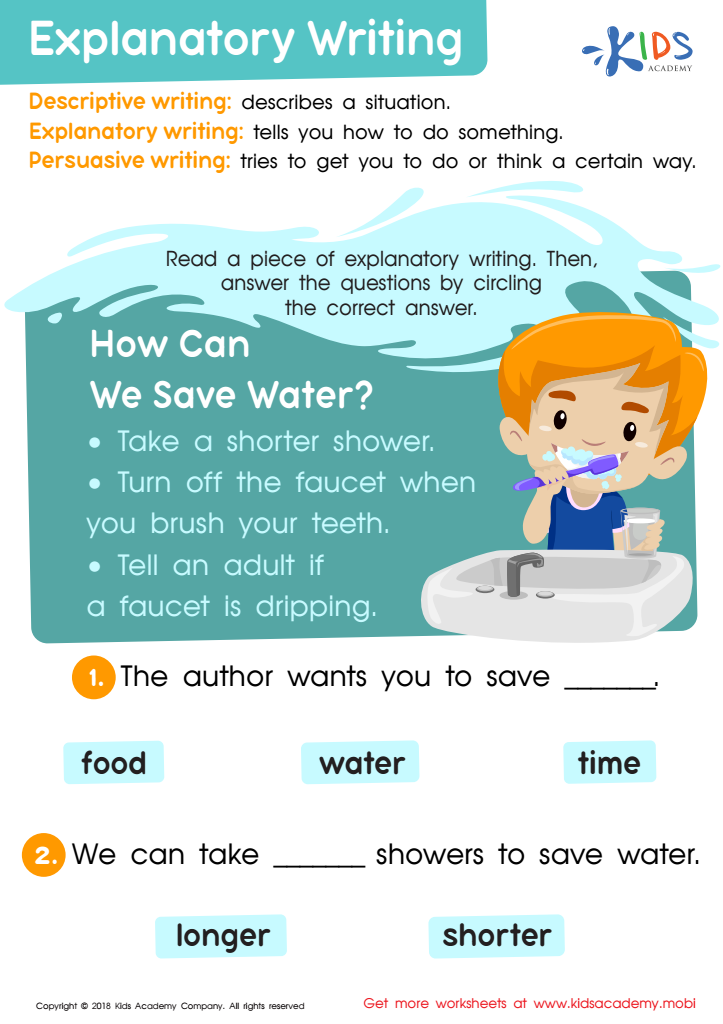

Explanatory Writing Worksheet
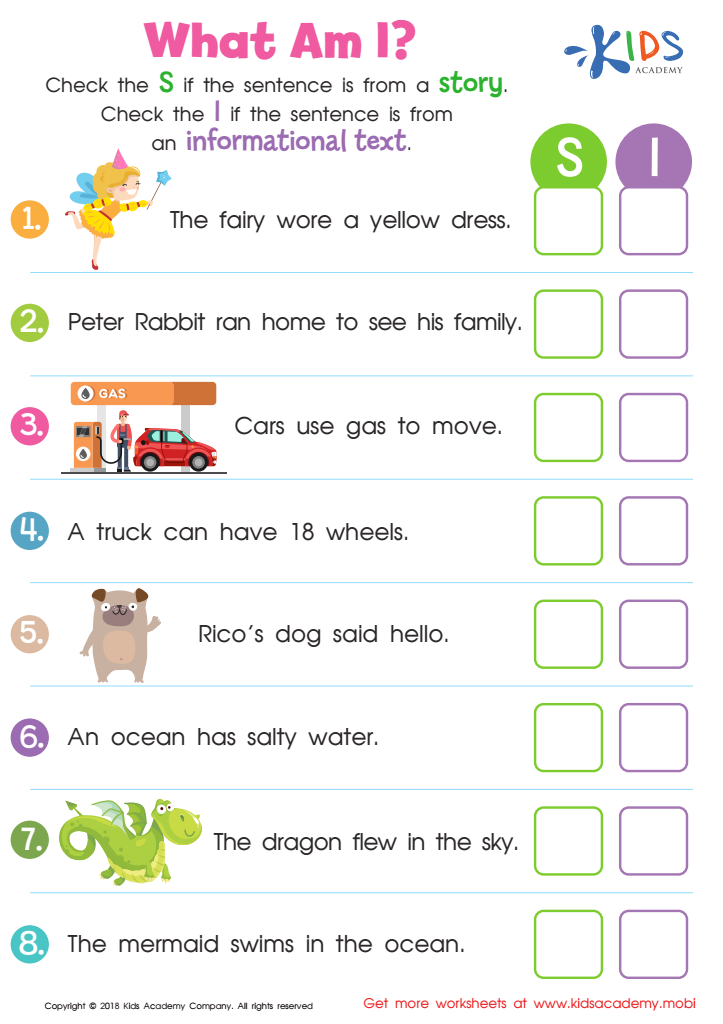

What Am I? Worksheet
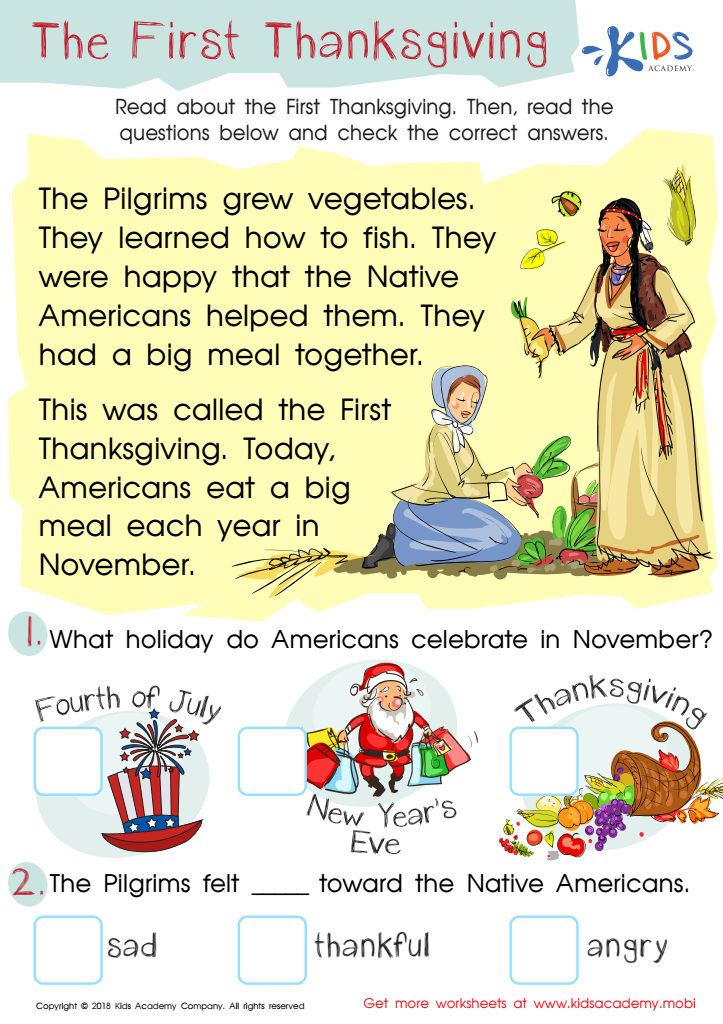

Assessment: First Thanksgiving Worksheet
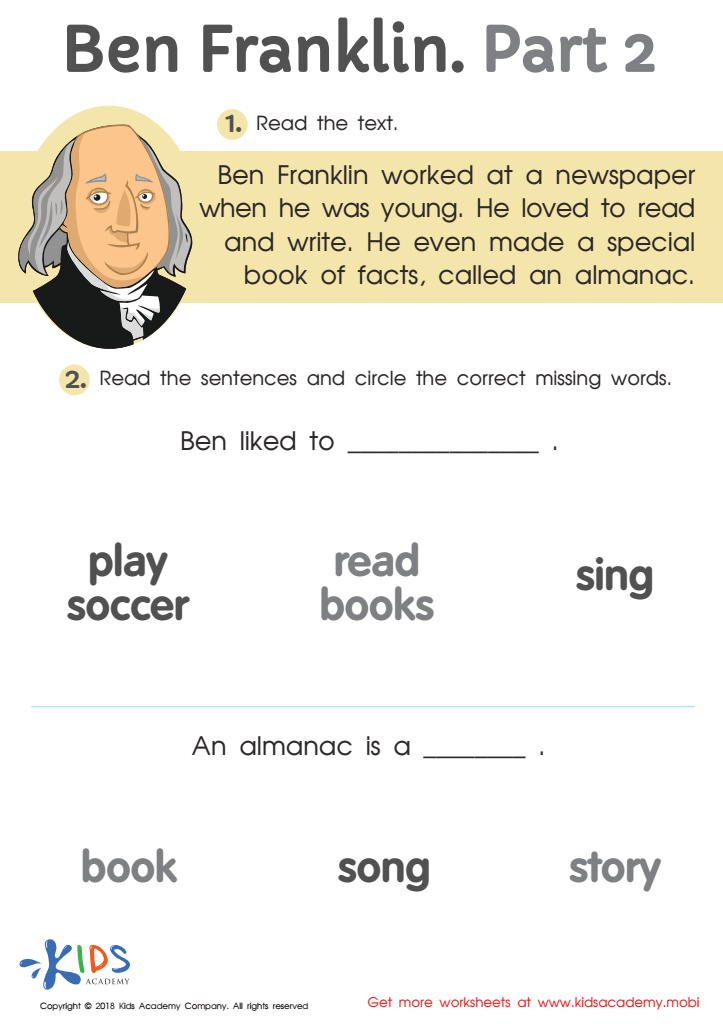

Ben Franklin Part 2 Worksheet
Critical thinking and reading non-fiction are crucial for children aged 6-7 because these skills lay a solid foundation for academic success and informed decision-making. At this developmental stage, children's brains are highly receptive to absorbing new information and understanding the world around them. Engaging with non-fiction texts allows young learners to build a knowledge base about real-world concepts, fostering curiosity and a love for learning.
Critical thinking strengthens students' abilities to analyze, synthesize, and evaluate information rather than passively consuming it. These skills are essential not just for academic tasks, such as understanding stories and solving problems, but also for everyday decision-making and distinguishing fact from fiction in an increasingly information-rich world. For instance, when children read non-fiction about nature, science, or history, they learn to ask questions, make connections, and draw conclusions, all of which are fundamental critical thinking processes.
Moreover, developing these skills early helps children become more autonomous learners. They grow better equipped to handle complex tasks and navigate academic challenges as they progress through their education. Therefore, parents and teachers should actively nurture critical thinking and encourage reading non-fiction at this pivotal age to ensure their children's lifelong educational and personal growth.

 Assign to My Students
Assign to My Students











